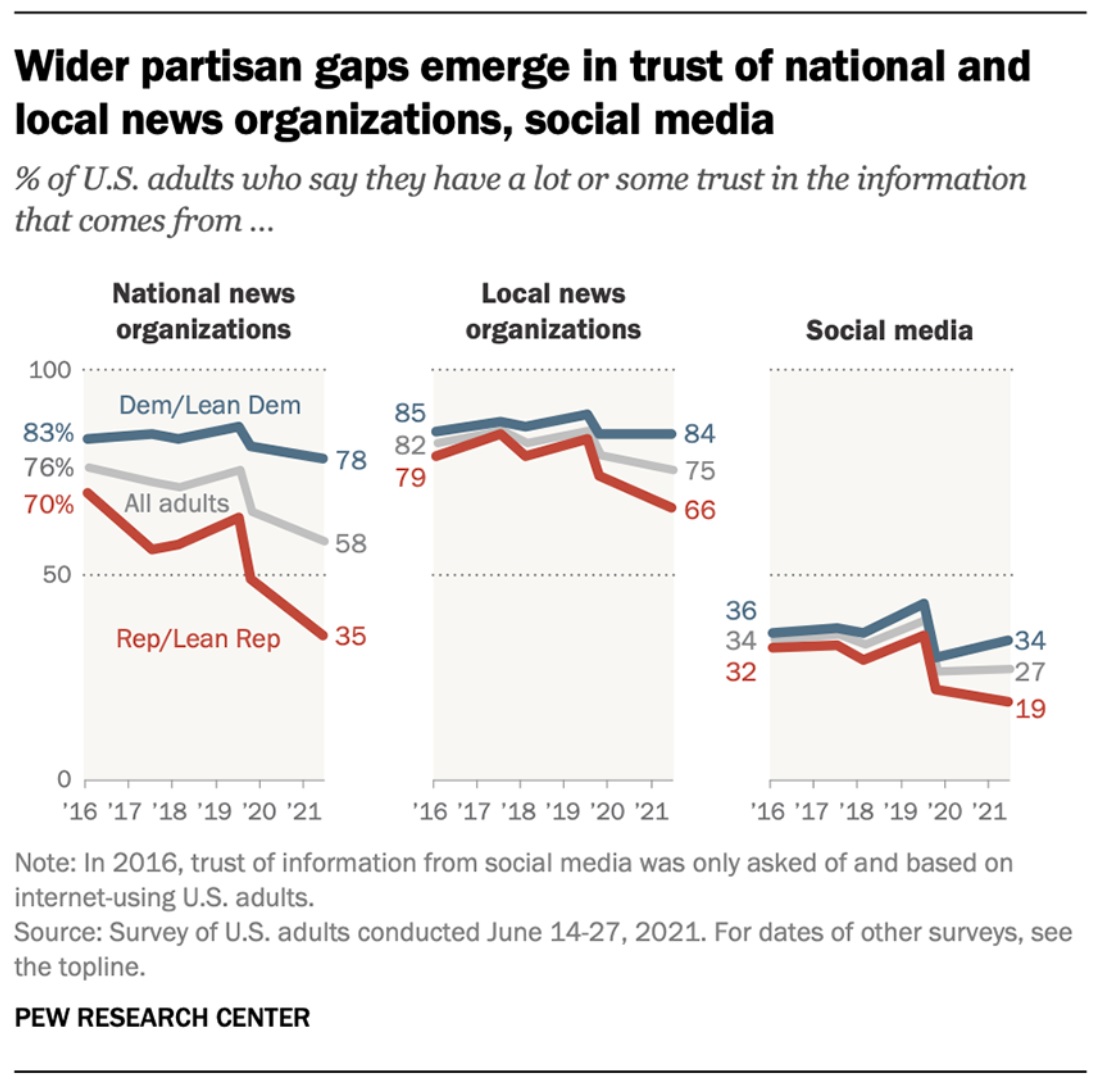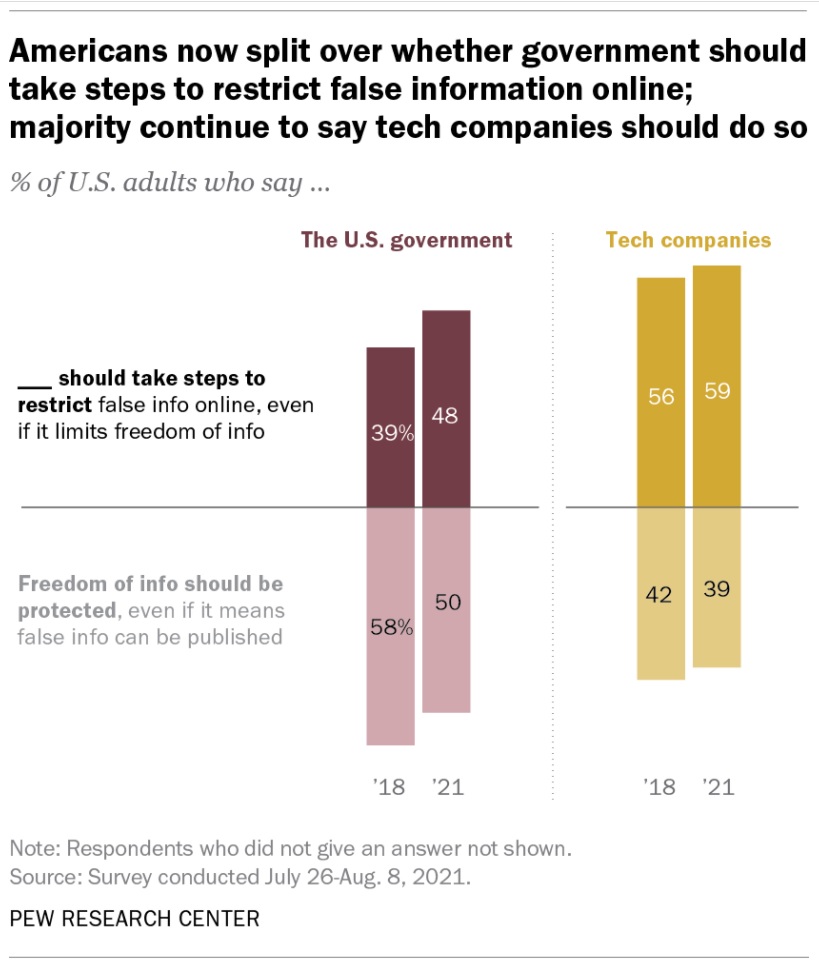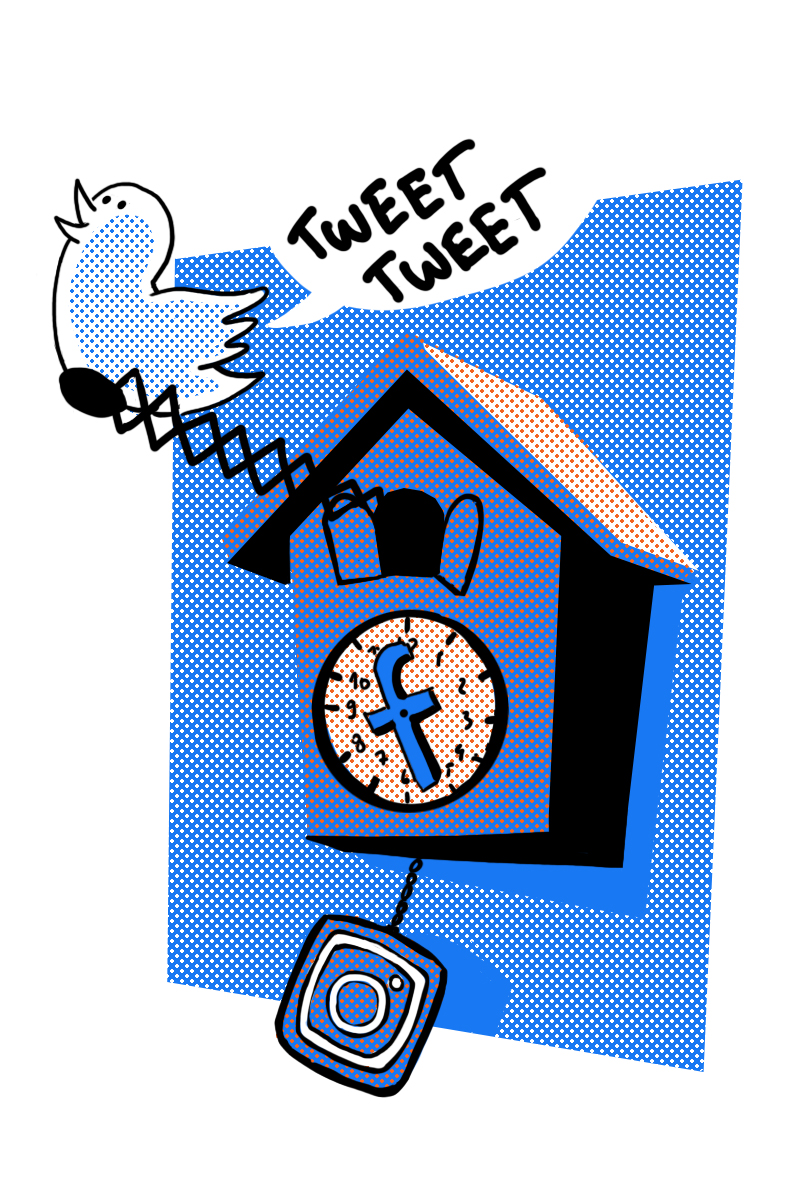
Most of my writing is about politics and media. I never wrote about Facebook because I consider it irrelevant. Now, when politicians and media portray Facebook as a bad actor, let me explain why they are wrong.
Why do 30% of Minnesotans not trust Senator Klobuchar?
It was the bad luck of Senator Amy Klobuchar that I turned my TV on when she was on CNN. I heard her saying: “We know that the majority of the people that aren’t getting vaccines read stuff on these platforms.” She meant social media websites, Facebook the most prominent among them. One can ask: Why do voters in Minnesota not trust their third-term senator and seek information from some murky sources? About 30% of eligible Minnesotans have not been vaccinated.
Across the whole United States, about 34% of eligible people had not been vaccinated same day. It meant that about one-third of Americans did not trust their politicians on such a simple and obvious issue.
This instance could explain why we have an ongoing stalemate on much more complex issues such as immigration, health care, global warming, or public finances, where disinformation is easier to spread, and comprehension requires more effort.
Why do people not trust the media
We do not know why Dana Bash, who was conducting the interview, did not ask Senator Klobuchar why a meaningful number of her compatriots do not trust her. We can only guess that Ms. Bash anticipated that Senator Klobuchar would riposte that she is not in the media business, CNN is. Ergo, the fault falls on CNN.
She would be right. Even before the antagonizing presidency of Donald Trump, only 76% of Americans trusted national news organizations. Now, it is 58%, but only 35% for Republicans. According to the Pew survey, almost half (48%) of Americans say that they get news from social media “often” or “sometimes.”

No one puts a gun at Americans’ heads to go to Facebook, YouTube, Twitter, Reddit, and a bunch of other social media sites in the search for the truth. Why do they do it? Why do people flock to social media sites instead of following CNN or Fox News, reading the Wall Street Journal or The New York Times? The answer is in noticing that in the wave of criticism of Facebook, none of the major media outlets asks that question. If they did, they would see that we go elsewhere because they do not do their job.
We do not trust them because they do not ask for the cause when they report the problem. Instead, they reach into the arsenal of their political preferences and try to sell them to us as a solution. As an example, let us check what they propose as an antidote to the supposed evils of Facebook and other social media sites.
Will censorship make people trust media and politics?
Senator Klobuchar sees a need for a bill countering “at least” misinformation about vaccines. It would be a dangerous encroachment on the First Amendment. Traditional media outlets guard their independence from the government. But complacent in their established position, they dislike the challenges from the unruly social media and report them as the cause of our deep political divide.
The public seems to buy into it, and the support for restrictions on “false information” online is growing. I use quotation marks because it will be up to the government censors to decide what is and is not “false information.” Even if tech companies do it themselves, they will execute the will of the regulators.

One might expect that Democratic-leaning media outlets would ask for more government regulations. They are not alone. I sense the same tone from the battery of negative articles about Facebook in the Wall Street Journal as well.
However, The Daily Signal, a bulletin from the Heritage Foundation, a conservative think tank, beats them all. In his column there, “How Our Children’s Addiction to Technology Hurts the Country,” Armstrong Williams laments how we are failing in protecting our youngsters from spending too much time online. After a vague suggestion that we should do something about it, he is very precise about who should be accountable, as he writes: “President Joe Biden has a real responsibility to set the stage for the coming years.” Should Mr. Williams at least help? Yes, he will. How? “I pray for his success (President Biden) and the success of our youth,” Mr. Williams writes. The once-leading conservative think tank suggests prayers to solve our nation’s problems.
Americans seek alternative news sources because they suspect the collusion of political elites with the major media organizations. People speculate that the media supports the excessive government spending that benefits the elites. The rest of us get crumbs that fall from the table of the rich. It does not matter how much truth is in this theory; still, politicians such as Senator Klobuchar should know that this is the reason that Americans seek alternative information on social media sites.

Senator Klobuchar does not get it when she suggests regulating social media platforms. First, it would be unconstitutional, as online sites gain popularity because of the mistrust of the mainstream media. They do the job that citizens expect from the news outlets; ergo, they are protected by the First Amendment.
Second, if any regulation restricting Facebook passes, it would confirm the above-described plot between media and politics in the public’s eyes. More people would distrust media and politicians, Senator Klobuchar in particular.
Socialists do not want Socratic debates
The dysfunctionality of the American media deserves an extended essay on its own, but the comparison of CNN with Fox News can explain the crux of the problem.
At its inception in 1980, CNN intended to be a neutral news source. Fox News started 25 years ago as a response to the perception that CNN had become left-leaning. Its design was to present news with conservative-leaning commentary.
Today, CNN has adopted the Fox News model as well. Its acronym stands for Cable News Network, but it should be Commentary News Network because every minute of news is followed by an hour of commentaries. The same talking heads repeat the same indoctrination, regardless of what the issue is. After a few minutes, the viewer gets annoyed and switches to Fox News, facing the same model, only a different dogma. Frustrated, Americans turn the TV off and look on the internet for what is going on.
Why do those talking heads on competing networks not face each other in front of the camera so we can listen to their arguments and make up our minds?
Fox News accuses CNN of being pro-socialistic. There is a grain of truth in it, considering CNN’s support for excessive government spending, including Obamacare. But Fox News, under the pretense of national security, also advocates excessive government spending but on the military.
Pro-life advocacy is another Fox News narrative. It boils down to using the power of the government to coerce others to behave in a way supposedly better for society. It is as much pure socialism as it could be. The case of Texas shows they are ready even for the Soviet-style police state.
The Fox News stance on immigration is another example of supporting a big government micromanaging the labor market. It is a socialistic concept as well.
If CNN ideologues would ever confront their adversaries from Fox News, they could win the debate only by proving that Fox News propagates socialism. But by doing that, they would need to acknowledge that their pro-socialistic agendas are wrong, too.

Older readers may remember Firing Line, a TV program run by William F. Buckley from 1966 until 1999, where viewers experienced authentic debates between opposing views. A similar format was used on Crossfire, another program run in the years 1982–2005. Later attempts at the reincarnation of these programs lacked the authenticity of the originals.
In programs like Firing Line, the advocates of socialistic ideas kept losing in confrontations with supporters of the free market. In the 1970s, in Poland, despite censorship and political restrictions, I was among those who tried to figure out how to make socialism work. The little freedom of expression we had was enough to convince Poles that socialism would never work.
It was long ago, but socialists did not forget that they always lose in the fair-and-square debate. Hence, socialists from both CNN and Fox News do not seek an honest discussion. They steer our attention away from them to Facebook.
Facebook is chatting about nothing
In its concept, Facebook is a gossip forum. We always have wasted time chatting about nothing in the laundromat or the corner store. Now we have a washing machine at home and supermarkets. Add emails to that, and the chances of joyful casual chats have vanished. Facebook perfectly fits that gap. It spread like fire because it gave us the bliss of private tête-à-tête in the virtual world.
The difference is that what we say in private conversations might stay in the minds of our interlocutors, but it dissipates with time. Whatever we say in the digital world, it stays there forever. But it is not Facebook’s fault.
In my youth, almost half a century ago, I had my 15 minutes of fame as a political writer in Poland. I soon noticed that whatever I said or did, even within a small circle of friends and family members, went through the grapevine and returned to me from people who had no business to know. I was a petty celebrity worth gossiping about. In response, I became careful and acted so that I could always defend what I said or did in private if it would become public.

I apply the same approach to my online presence and do not worry about my posts on Facebook, Twitter, LinkedIn, or YouTube becoming public. Also, I do not lose any sleep, fearing that my private emails might see daylight.
Some say that Facebook and alike sell what they know about me to advertisers. Good luck with that. Doomsayers tell me that “surveillance capitalists” know more about me than I do about myself; they use artificial intelligence to make me buy things I would not buy otherwise. I tell them: keep trying. I am confident that my archaic human intelligence protects me from bad influences, regardless of how deceitful they might be.
It appears that most social media users are dealing with the evils of Facebook and alike equally well as I do. Politicians and media complain mostly about influencers. Some of the weird and misleading voices get notoriety, not because of the failures of Facebook to root them out, but because the major news outlets do not do their job as the fourth estate.
Teens have always been the most vulnerable
But what about the negative influence of Instagram on teenagers? We have to protect minor children from the evils of the world. Teenagers might still be children, but they soon will be adults. During their teen years, they need to learn how to deal with the real world.

Adults probably would never agree on the best way of dealing with juveniles. Despite the best intentions, whatever we do, teenagers still keep making all the mistakes imaginable. Maturity does not come by turning a switch. It is a mundane process that requires a lot of attention from adults. If Instagram influences adolescents badly today, it is the failure of parents and teachers to prepare youngsters for the dangers and pitfalls of adulthood. If we shut down Instagram, immature teenagers will still misbehave, hurting themselves and others in different ways.
Mark Zuckerberg is a scapegoat
The leading media organizations became commercial dinosaurs. They did not adapt well to the digital world. I see this as the cause of all American problems. We are on the eve of the continental shifts in media, with new ventures mushrooming from the social media crowd. With that perspective, I inquisitively observe the existing online platforms, Facebook in particular.
As a gossiping platform, Facebook is not well predisposed to transition into a mainstream media organization. But most of all, Mr. Zuckerberg and his team have no passion for that. It is not their calling. They seem content with making money running a gossiping platform. It is their right to do so.
When called to testify at Congress or when interviewed by tough journalists, Mr. Zuckerberg is often perceived as dismissive. Senator Klobuchar did not like his answers. I admire his composure in polite responses to ridiculous accusations. I have had no personal interactions with Mr. Zuckerberg or anyone from the Facebook leadership. However, if asked, I would advise going full steam with the offense as the best defense.
I would suggest to Mr. Zuckerberg to ask politicians in Washington how Facebook prevents them from agreeing on the budget. How does Facebook stop them from fixing our malfunctioning immigration policy? He should ask Democrats how Facebook is an obstacle in making Obamacare work finally. He should ask Republicans how Facebook prevents them from preparing a market-based alternative to Obamacare.
Mr. Zuckerberg should tell the worrying parents they should devote more time to explaining to their teenage daughters that what they have in their heads counts the most. Maybe they should take their daughters to Walmart and show them how, for $50, they can buy a few things to mask the real or imagined body imperfections, so the brightness of their brains can shine without obstructions.
To journalists, Mr. Zuckerberg should point out that if they did their job right, there would be no politics on Facebook, and whatever might be would not be newsworthy. He should tell them that whatever they dislike on Facebook mirrors America. If they dislike what they see, the mirror is not the problem.
Mr. Zuckerberg should tell the lofty elites of media and politics that their inability to solve our problems made our nation vulnerable to undue foreign influence. They should realize that even if chased out of Facebook, which is practically next to impossible, Russian or Chinese disruptors have endless ways to do it all over the internet. Hence, the American elites have two options. They can go to work and fix our problems, or they need to censor the internet the same way China does. He should tell them that what they ask from Facebook leads us to the Soviet Union of America. Then, he should pause and make eye contact with as many listeners as he can manage.
I doubt that Mr. Zuckerberg would ever follow my advice; politics does not seem to be his passion. But it could be as well that he might think that my advice would be harmful to Facebook. The thought of that being the case is frightening.

 Many tell us what to think. I ask my readers to be skeptical. Question me and others.
Many tell us what to think. I ask my readers to be skeptical. Question me and others. 